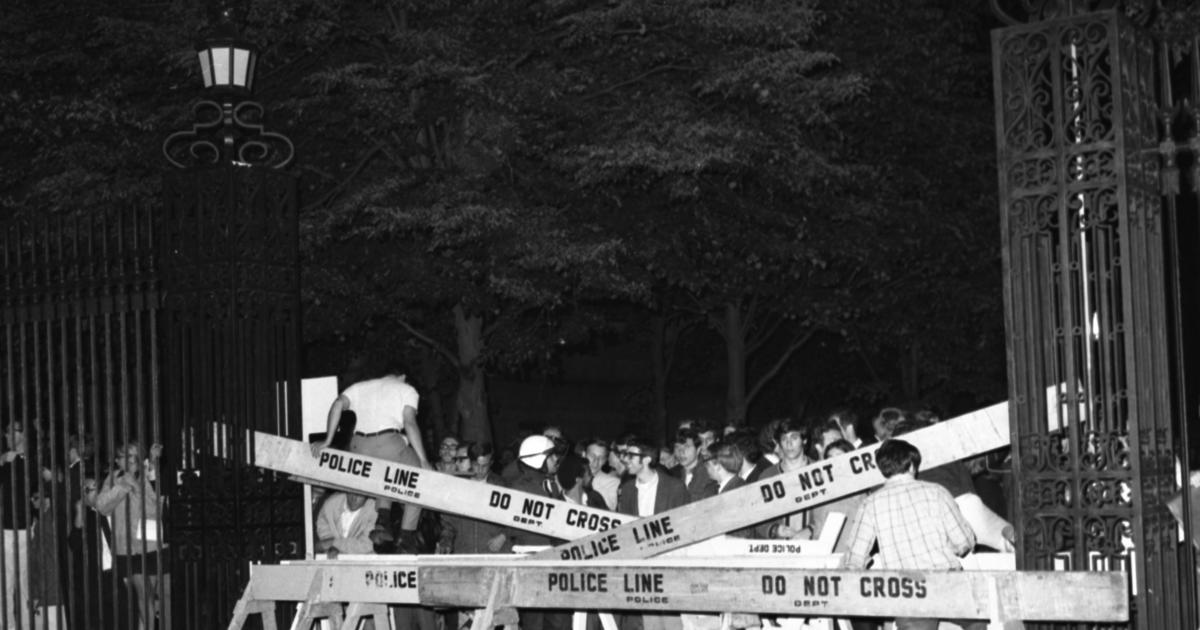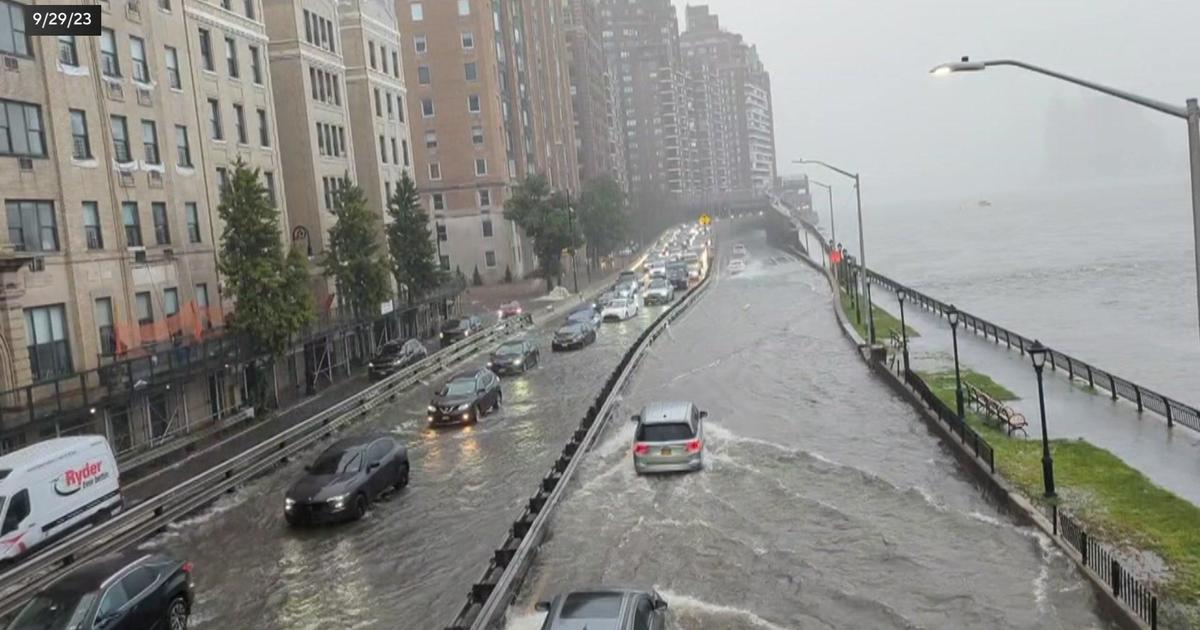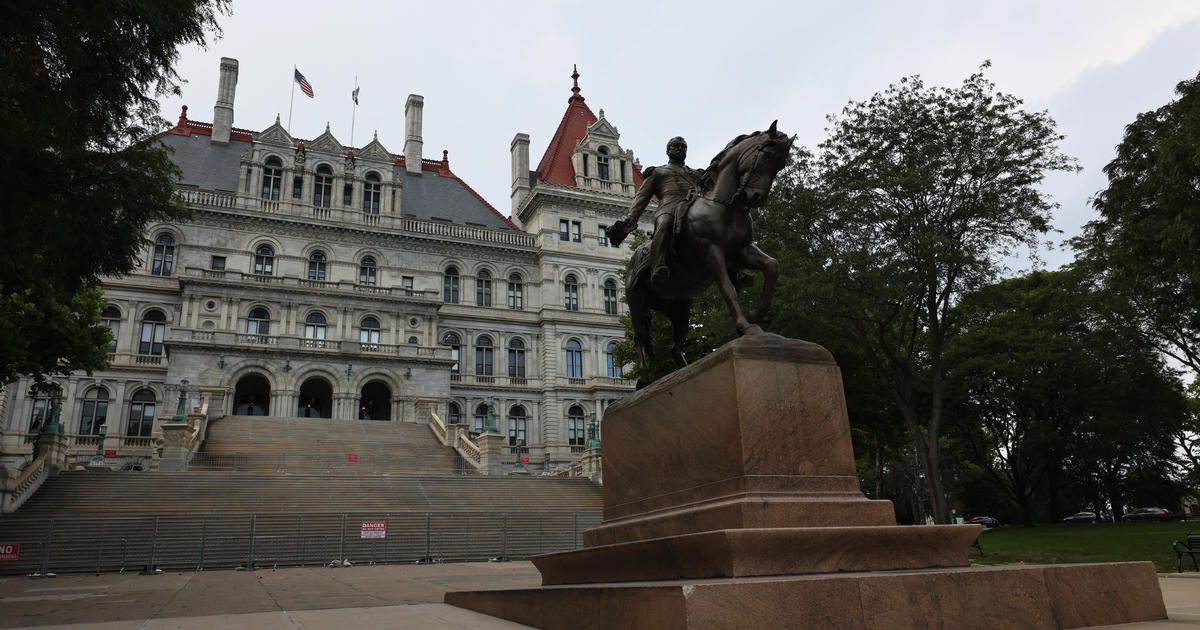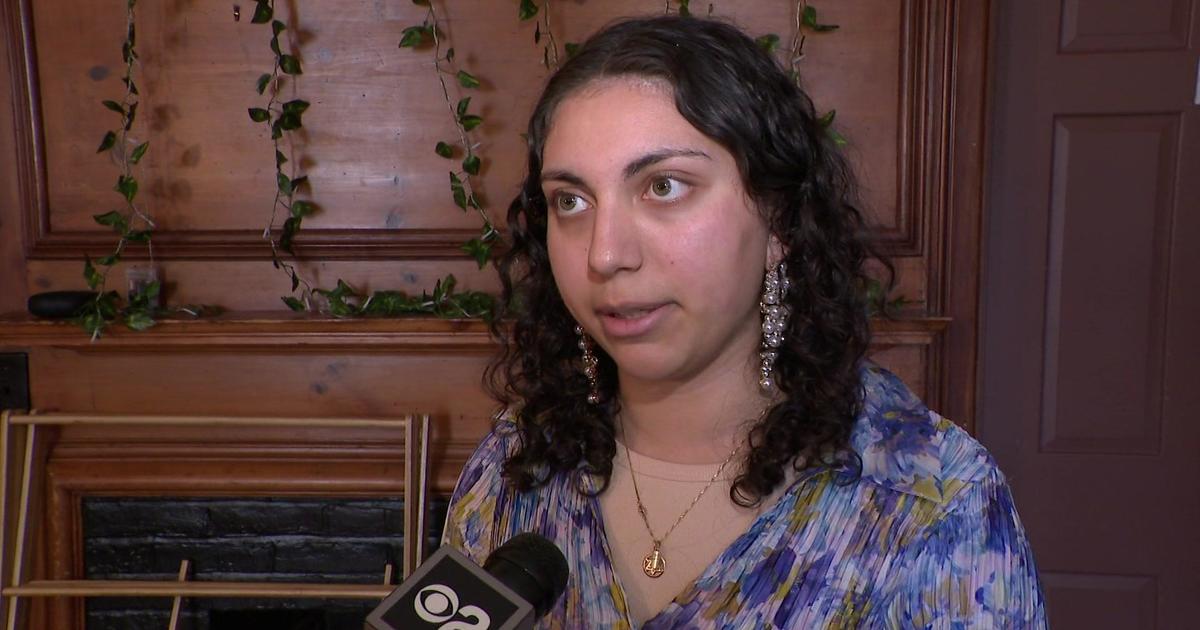"Fake Farmers" Cost N.J. Taxpayers Millions
NEPTUNE, N.J. (AP) -- Spotty enforcement and an outdated state law allow thousands of landowners to pay pennies on the dollar in property taxes.
The Farmland Assessment Act of 1964, intended to preserve agriculture in New Jersey, is being used by millionaires, developers and anyone with at least five acres to slash their farmland tax bills by 98 percent.
An Asbury Park Press investigation into farmland assessment records found that landowners deemed "fake farmers" by those calling for reform are producing little more than the bare minimum -- $500 -- in goods to qualify for the tax breaks.
One landowner grew weeds and another forged a signature on a government document in attempts for the tax break, the Press found. A third used a cow to eat the home's front lawn for a few months and then sold the animal in the fall. Under the law, that homeowner was entitled to the tax break on his five acres.
"It was never the intent of the law that fake farmers would benefit," said state Sen. Jennifer Beck, R-Monmouth, who has proposed changes to the law. "If it's not fulfilling the intent of the law, it is a violation of the public trust."
The so-called fake farmers are likely costing local governments at least $82 million a year in lost property tax revenues, according to the Press analysis of 3 million property and tax records.
Richard Motyka, a tax assessor in seven towns in Warren and Passaic counties, criticizes those taking advantage of the law.
"Farmland assessment was intended for farmers to get a tax break, but what's happened is the homeowner wants a tax break so he pretends he's a farmer," Motyka said. "If you have 300 people getting farmland assessment (in a town), that means everyone else, including the farmers, has to pay taxes on their land to make up for that."
The Press found weaknesses in the oversight of farmland assessment and its sister program for woodlands that allow those whose primary income does not come from farming to exploit the tax law. In the review of thousands of farmland assessment records in six counties and in interviews with tax assessors, state and local officials, the Press found:
-- A lack of inspections. Only 10 percent of the required inspections of farm-assessed woodlands were done this year by the state Department of Environmental Protection. DEP foresters are required to inspect such woodland properties every three years. DEP officials say they can't ensure that owners of uninspected properties are meeting the requirements for a tax break. DEP Commissioner Bob Martin said officials next year will consider whether the agency should be involved in farmland assessment and what improvements are needed.
-- A lack of proof and verification. The Press found inconsistencies in record-keeping and inspection practices. Numerous applications lacked such required information as signature of the property owner or an accounting of goods sold.
-- Reduced oversight. The state Division of Taxation, which oversees the farmland assessment program, has not conducted a town-by-town review to assess the program since 1985. Since then, the number of state workers who monitor farmland assessment has dropped about 50 percent to five, division officials said. But they said they continue to monitor the program and educate tax assessors on the details of law.
-- Cat-and-mouse games. Some property owners tried to claim a farmland deduction when they didn't either farm or sell anything.
In Freehold Township, Tax Assessor William J. Fitzpatrick is vigilant about inspecting properties. "Natural growth of weeds does not constitute farming," he stated in a written denial of one application for farm assessment. In Frelinghuysen in Warren County, one property owner claimed $650 in woodland income but instead harvested six cords of wood for personal use, according to the tax assessor and records. The owner's application for 2010 was approved.
Tewksbury in Hunterdon County refused a request by the Press under the state's Open Public Records Act to view farmland assessment documents unless a prepayment of $182.82 was made for copying and redaction costs.
"We cannot allow open and unfettered access to these files," Tewksbury Township Attorney Howard A. Vex stated in a letter. Tewksbury, with 10,824 of the municipality's 20,352 acres under farmland assessment in 2009, was the only town denying access to the public documents.
-- Minimal penalties. When land is taken out of farming or woodlands, the property's owner must pay two-plus years of taxes at the regular, non-farmland rate to the municipality. Compared with the rest of country, New Jersey is on the low end of the payback scale. Other states require up to a 10-year payback to deter land speculation. Attempts by legislators to increase payback have stalled.
Until the law is updated, those who pasture a couple of horses or keep bees on at least five acres and earn $500, or slightly more, will qualify -- legally -- for that 98 percent tax break.
"Today, $500 is a joke," said the assessor Motyka. "You do the math. It grosses $9 a week. ... It's insane."
Updating farmland assessment is something Gov. Chris Christie said is "a good issue. I've not thought about it. You're the first to ever raise it."
Indeed, the tax savings for those whose primary income is not in agriculture can be substantial.
Developer Hovsons Inc., for example, owns 20.8 acres along the scenic Navesink River in Middletown, one of the most exclusive areas in the state. The address is also the home of Hirair Hovnanian, patriarch of the Hovsons building empire. On the palatial estate, complete with tennis court, pool and boat dock, Hovsons Inc. paid $214,000 in property taxes for 10.3 acres of non-farm assessed land.
Yet for the surrounding 10.5 acres of farm-assessed land, the Tinton Falls-based company paid $31 in property taxes. If it wasn't assessed as a farm, the tax on the 10 acres likely would range from $150,000 to $250,000 a year, based on the value of the non-farm Hovsons Inc. land and the assessment of a nearby riverfront parcel.
How did Hovsons do it? To qualify for the tax break, the company sold $600 worth of honey produced by 22 beehives, according to tax records. Calls to Hovsons Inc. for comment were not returned.
It's the same legal tax break real estate developers, corporations, financiers, business moguls, celebrities and other property owners statewide have tapped for decades. Much of the time, the land is used as a privacy buffer or banked for future development.
That means, said Sen. Beck, that the law intended to protect and preserve the industry of agriculture "is also protecting people who are not farming, who are using it as a tax shelter."
In 2007, Beck defeated an incumbent who qualified for farmland assessment by growing Christmas trees on her property. Since taking office, Beck has pressed for reforms, including raising the income threshold. But her efforts have stalled.
Christie said he'd be willing to consider raising the income requirement as well as a host of other reforms "as long as we do so in the context of fairness and shared sacrifice."
State Agriculture Secretary Douglas H. Fisher also thinks the $500 income threshold set in 1964 could be increased. If adjusted for inflation, that sum today would be about $3,500. But those who don't consider five or more acres with two horses, two alpacas or two emus a farm may have a "bias as to what somebody thinks a farm should look like," Fisher added.
In fact, said Patricia Wright, who oversees farmland assessment in the state Division of Taxation, "the law does not say you cannot be a gentleman farmer or you have to have farming as your main livelihood."
Fisher said farmers who pay regular-rate property taxes on their homes and other structures not directly associated with farming "accept" their plight.
"What they really want to do is just be able to farm," he said, noting that from 1950 to 1960, the decade leading up to enactment of the law, the state lost some 10,000 farms, roughly 30,000 acres each year.
Edward Wengryn, research associate for the 14,000-member New Jersey Farm Bureau, said the law is "the reason why we haven't been paved over, and we still have agriculture. Does it need periodic review? I think every state program does. Is this the time to do it for farmland assessment? That's what the (lawmakers) and everyone has to decide."
Farmland losses have averaged 12,000 acres annually since 1964, said Lynne Richmond, spokeswoman for the agriculture department.
Some tax assessors, as well as many in the farming community, said changes to the law could prompt selloffs of farm-assessed lands to those who will build houses, which in turn would require more police, roads and schools -- and likely higher taxes.
Undeveloped land doesn't demand much in the way of municipal services, said Chris Sturm, senior director of policy for New Jersey Future, a nonprofit smart-growth group.
William Schlechtweg, a Jackson farmer, said, "I realize a lot of times it's being abused, but by the same token, if it wasn't for farmland assessment ... a lot of this land in New Jersey would be kept out of agriculture."
The rolls of those with farm-assessed land in New Jersey read like a who's who in the world of high finance, business and entertainment. Those in the rich-and-famous category with approved applications for tax breaks in 2009 and 2010 include:
-- Financier Michael C. Price, with a net worth of $1.4 billion, Bedminster: 92 farm-assessed acres, on which he paid $359 in taxes in 2009.
-- Robert Wood "Woody" Johnson IV, heir to Johnson & Johnson and owner of the New York Jets football team, Bedminster: 269 acres, $1,470 in 2009.
-- Publishing magnate Donald E. Newhouse, with a net worth of $5.4 billion, Hopewell Township: 273 acres, $1,787 in taxes for 2010; in West Amwell, 77 acres, $611 in taxes in 2010.
-- Publishing magnate Malcolm "Steve" Forbes, including properties with his wife, Sabina, Bedminster: 450 acres, $2,005 in taxes in 2009.
-- E Street Band drummer Max Weinberg, Middletown: 34 acres, $122 in taxes in 2010.
-- Rock star Jon Bon Jovi, Middletown: 7.1 acres, $104 in taxes in 2010.
Lamington Farm Club, under the corporate umbrella of entrepreneur and TV personality Donald Trump, Bedminster: 195 acres; $277.
-- John Whitman, husband of former Gov. Christie Whitman, Tewksbury: 167 acres, $1,521; in Bedminster: 65 acres; $173.
-- Vernon Hill II, former CEO of Commerce Bank, Moorestown: 29 acres, $79 in 2010.
(Copyright 2010 by The Associated Press. All Rights Reserved.)



